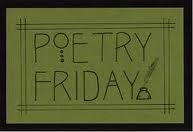It’s the first Poetry Friday
of Halloween month. Today I’m going to tell you about great Halloween read for
teens. There will be a poem, too. We’ll save that for last.
 |
| Heidi Mordhorst is kicking off our Happy Halloween season at My Juicy Little Universe. |
The book in question is a
horror novel, one I loved, even though I almost never read horror. I am not
brave when it comes to scary books. Or movies. Or TV shows. If you insist on
watching the Halloween episode of “Little House on the Prairie,” I will quietly
disappear from the room before things get intense.
But I made an exception for
the YA novel SHALLOW GRAVES by my fellow 2016 debut author, Kali Wallace. I
bravely signed up to read Kali’s ARC. I took a funny picture of my dog freaking
out with fear.
 |
| No dogs were harmed in the taking of this picture. Rudy just looks ridiculous when he yawns. |
To explain why I fell in love
with the story of a Breezy Lin, a teenage revenant (not “zombie,” please, our
protagonist is neither mindless nor is she into eating brains), I have to tell
you a true story.
Last weekend, my friend’s niece was in a terrible car accident. Although she survived, one of her friends was killed. How will this teenager cope? Witnessing the death of a classmate will irrevocably change who she is and how
she interacts with the world.
So, my question is, how do
teens begin to recover from this kind of intense trauma? The same question
is at the heart of SHALLOW GRAVES. The more I thought about the novel, the more I realized that -- like the best science fiction and fantasy books -- the story serves as a metaphor for difficult things that we confront in real life.
 |
| Pre-order from Amazon. |
A year after she is murdered,
seventeen-year-old Breezy Lin wakes up in a shallow back-yard grave. The
circumstances of her revival are mysterious, magical, and as violent as her
initial death.
Although she wants nothing
more than to return, alive, to her life as it was, Breezy is fundamentally a different
person because of the trauma she has experienced. She can’t go back to her
family or be her old self. Instead, she has to let go of the labels with which
she once defined herself (future astronaut – that’s not going to happen) and
find new, more complex ways of understanding who she is. METAPHOR.
Breezy’s quest to find out
what she is and how she came to be undead takes her to some truly frightening
places. Along the way, Breezy is forced to learn how to tell the difference
between those who want to help her and those who want to hurt her (a great cast
of religious fanatics, ghouls, and one ancient creature so evil, your skin will
crawl), a skill she did not have when she was alive.
SHALLOW GRAVES was recently
reviewed by Kirkus. Check out what they had to say here.
Breezy is courageous in her willingness to confront
the truth. Underneath this tale of imagined monsters is a real road map for survivors. Because the paranormal elements are a metaphor, a lens for looking at real human experience, the reader follows along as Breezy copes with trauma, recognizes that it has changed her forever, and begins the process of being comfortable with who she is now.
I wanted to find the perfect
poem to read alongside Kali’s wonderful book. And here it is…
Monsters
By Dorothea Lasky
This is a world where there are monsters
There are monsters everywhere, raccoons and skunks
There are possums outside, there are monsters in my bed.
There is one monster. He is my little one.
I talk to my little monster.
I give my little monster some bacon but that does not satisfy him.
I tell him, ssh ssh, don’t growl little monster!
And he growls, oh boy does he growl!
And he wants something from me,
He wants my soul.
Read the rest at the Poetry Foundation.
Stay spooky.

.jpg)



















